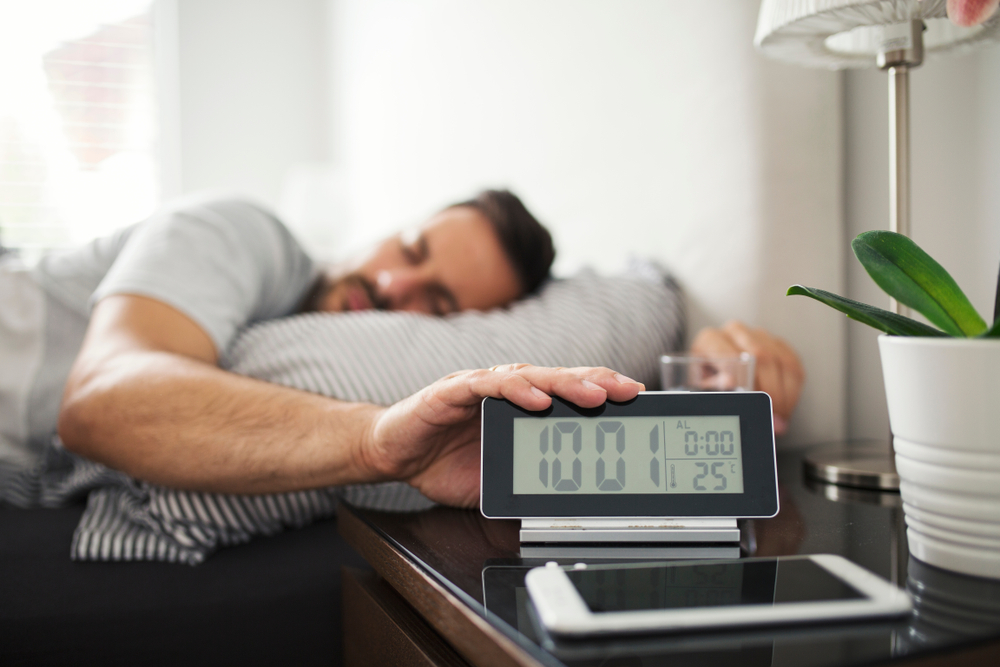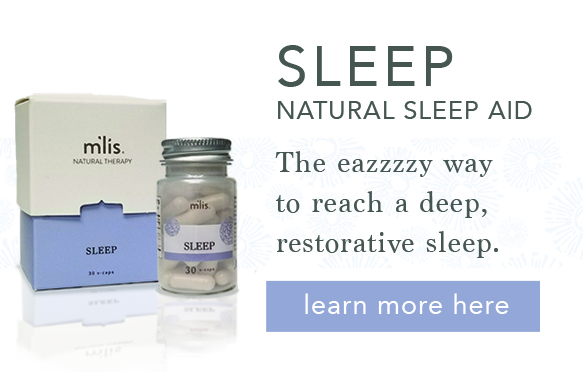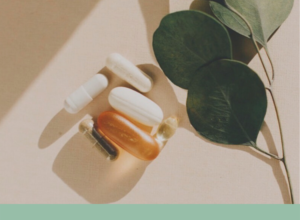
It’s no mystery why everybody loves to sleep when it makes us feel amazing and ready to take on life! However, not all of us know why sleeping is essential to our health and what we’re leaving on the table when we’re not getting enough of it. Here’s why you should prioritize giving your body the amount and quality of sleep it needs and natural solutions to help you obtain it.
Why Do You Need Sleep?
1. Cellular Renewal
Sleep is the primary restorative activity that we take within our body and our health. It’s quite literally “the reset switch” for nearly every process in our body to function at an optimal rate. On a molecular level, sleep is when the majority of our cellular renewal takes place. Cellular renewal is a term coining an optimization process that our bodies perform to cells that get old, slow, and need regeneration. The net effects of missing that cellular renewal are pretty much everything that we associate with aging.
2. Enhance Youth
Restorative rest is a beauty product, and all of the external signs of aging creep in when we’re not getting enough, such as bags under the eyes and deeper wrinkles. People walk up to us and say, “you look tired,” which is like the most backhanded cut ever. Nobody wants to look tired! However, when our cells aren’t renewing as they should from a lack of sleep, those signs of aging begin to make their appearance.
3. Hormone Production
Most of our hormone production happens while we’re sleeping — especially the big ones. Men, if you’re concerned about your testosterone levels (which you should be, it’s essential for many facets of your health), know that most of its production happens while you sleep. Same with the human growth hormone (the “fountain of youth” hormone). When we aren’t sleeping well, we aren’t getting the proper release of the human growth hormone to help keep us looking and feeling young.

4. Memory & Mood
The mood-dictating brain chemistry that keeps you feeling positive, happy, and optimistic (all the things you want to feel) is created in large part when you sleep. Without adequate rest, you’re missing out on that vital brain chemistry production.
Brain chemistry production isn’t the only brain function that takes place while you sleep. Your brain actually filters information from the day to create short-term and long-term memories. Without sufficient sleep, you’ll have a harder time learning and recalling new information.
How Much Sleep Do You Need?
While there’s a lot of debate over this, many researchers have found that we might not need as much sleep as we once thought we did. Nonetheless, more than most people still aren’t getting enough of it.
The old standard of sleep was always 8 hours. Advanced sleep studies find that the best amount of sleep for the average person around 7 – 7½ hours, not 8 hours.
Oversleeping Has Its Reasons
Not only is it about how many hours of sleep you get each night, but it’s also equally important at how well you sleep. Your quality of sleep can easily be affected by your lifestyle choices.

Reasons Why You May Need 8+ Hours of Sleep Each Night:
- High Stress
- Eating Unhealthy Foods
- Lack of Exercise
- Chronic Dehydration
Prioritizing general wellness habits can reduce the total amount of sleep that you need each night because your body won’t be trying to make up for unwanted health conditions an unhealthy lifestyle can bring.
What Can You Do To Sleep Better Naturally?
If you need better sleep quality, the answer often begins with improving your sleep hygiene. Sleep hygiene is a habit that promotes the proper internal environment of your body, and the environment of your bedroom to set you up for quality, restorative sleep each night.
1. Create an Ideal Sleep Environment
Once upon a time, we used to sleep in extremely dark and cool caves. This concept is the best way to think about why science is finding that your bedroom should mimic “cave-like” environmental qualities to promote quality, restorative sleep during the night.

- Light Level – As dark as possible. Turn off TVs and cover-up any ambient lights such as alarm clocks.
- Temperature – Not too cold and not too hot. Between 68 and 70 degrees is the sweet spot.
2. Limit Blue Light Before Bed
Computers, TVs, and phone screens are the most diabolical sources of blue light in our modern-day lives. However, using them right before bed isn’t good for our health because of the negative effects they can have on our sleep.
Our brains recognize blue light as sunlight, which can inhibit the release of sleep-inducing melatonin and reset your body’s sleep schedule. For this reason, we recommend you try setting up a routine that takes you away from blue light as much as possible one hour before bedtime.

You may have also heard of “blue light blocking glasses.” These orange lens glasses can be helpful to use at night by blocking the ambient blue light. However, goofing with a blue light source while wearing blue light blocking glasses doesn’t replace the need to discontinue blue light use an hour before bed.
3. Cut Caffeine by Noon
It’s best to stop consuming caffeine or any other stimulants in the early afternoon because for many people (especially if you are not an exceptionally fast metabolizer of caffeine), the stimulant can affect you through bedtime and keep you from sleeping well. Even if you still happen to fall asleep, you will miss out on deep, quality sleep.
4. Practice a Bedtime Routine
Following the same set of wind-down activities about an hour before bed psychologically trains your brain to recognize when it’s time to go to sleep. Any activity that allows you to decompress from all the stresses of the day and transition into a restful state is good to do with the last hour before sleep.
Relax Your Mind
Put problems away for the night by creating a to-do list for the following day or even just writing down whatever thoughts, problems, or stresses are active in your headspace. This way, you won’t forget anything, and you can revisit these thoughts the next day as needed. Whatever process works for you, find a way to get those down in writing and put them away for the night, so you don’t have to stay up at night worrying about those things.

A lot of people find that reading is an excellent way to help relax the mind. Others find that meditation or yoga is a great thing for this. Pick an activity you enjoy doing that helps you take your mind off stressful events. What works for you may not work for someone else. If you don’t know what works for you, experiment!
Relax Your Body
Interestingly enough, sleep studies find that the rapid cooling of your body temperature helps to cascade hormonally into melatonin production. You can take advantage of this “health hack” by taking a cold bath that pushes your body temperature down rapidly, or a hot relaxing bath is equally as beneficial. As you get out of that hot water into your cool sleeping environment, your body quickly cools, melatonin is released, causing you to sleep better during the night.
5. Use Natural Sleep Aids & Supplements
While tranquilizing sleeping medication will make you unconscious while you sleep, it’s not giving you good sleep quality. Tranquilizing drugs create an effect on the body that’s much more like passing out than going into restorative rest mode. We don’t believe this is the answer to improving sleep quality. It’s simply not the natural way in which your body goes to sleep, and your body doesn’t recognize it as naturally occurring sleep.
Supplementally, there are things that we can do to help support quality, restorative sleep. The main thing is to provide your body the nutrients that it needs to maintain those natural hormonal activities that lead to sleep.

- Omega Fatty Acids – helps to improve sleep quality by fueling hormone production that you need during sleep.
- Vitamin D – low levels of vitamin D are linked with poor sleep quality.
- Calcium – helps to prevent jumpy legs or restless sleeping.
- Magnesium – aids in the body’s processes of sleeping.
For many years we’ve watched with frustration as the people we were working with on their health needed better solutions for getting deep, multiphasic sleep. So, we engineered M’lis Sleep to be the ideal supplement to help support natural, quality sleep.
If you’re reading this, you’ve probably heard of melatonin or even tried supplementing with it in the past. Melatonin is the hormone your body produces to help you fall asleep. There is melatonin in our M’lis Sleep formula, although there’s probably not as much as in some other of the formulas you might have tried. Some supplements have up to 10 milligrams, which is way too much. The M’lis sleep includes 3 milligrams of Melatonin, which is more than any human being needs to fall asleep, but not so much that it will have any negative side effects. It’s plenty to do the job, and you don’t need any more than that.
On top of that, we’ve complemented the melatonin in M’lis sleep with something called 5-HTP, which is a metabolite of an amino acid that is the precursor to the production of melatonin. By combining melatonin with 5-HTP, you’re able to achieve a natural “time-released” melatonin throughout your night of sleep.
Lastly, we have a transmitter in the M’lis Sleep called GABA, which is the neurotransmitter that your body uses for all of its relaxing systems. By delivering GABA to the body, M’lis Sleep ensures you’ve got plenty of that neurotransmitter responsible for reducing stress, calming down, falling asleep — all those things that we want to accomplish within our body for rest.





[…] Poor sleep impairs your glymphatic system, which can cause toxins to build-up. Practice proper sleep hygiene to ensure you’re getting 7 – 7½ hours of healthy sleep each […]